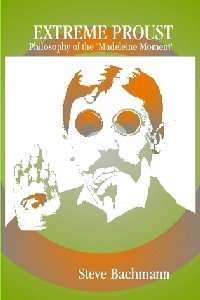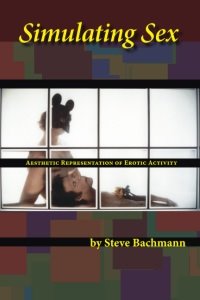3-25-2010—As little as 30,000 years ago, it now appears, there were five human species in the world –NYT—[four down, one to go]
--Democratic lawmakers have received death threats and been the victims of vandalism because of their votes in favor of the health care bill... NYT A16
--It is now [for the people of the USA] to demonstrate to the world, that those who can fairly carry an election, can also suppress a rebellion—that ballots are the rightful, and peaceful, successors of bullets; and that when ballots have fairly, and constitutionally, decided, there can be no successful appeal, back to bullets; that there can be no successful appeal, except to ballots themselves, at succeeding elections. Such will be the great lesson of peace; teaching men that what they cannot take by an election, neither can they take it by war—teaching all, the folly of being the beginners of a war.—Lincoln, July 4, 1861
--March 24, 2010—NYT, on page A16
College Breaks a Tradition of Silence Before Games
By SUSAN SAULNY
GOSHEN, Ind. — At the small liberal arts college here known for its pacifist Mennonite traditions, sporting events have never begun with the same pregame routine as almost everywhere else — cheering hoopla for the home team, complete with a ritual salute to the flag and the playing of the national anthem. Usually, the Goshen College Maple Leafs just huddle and head out to play.
But a baseball double-header on Tuesday broke with generations of tradition as the school made peace with “The Star-Spangled Banner,” playing it over the public-address system.
The players, standing alertly, turned their eyes to the flag, and most of the spectators cheered in the bleachers. Then, in another twist, the announcer said, “Let us pray.” Almost everyone joined in and recited the Prayer of St. Francis of Assisi, beginning with the words, “Lord, make me an instrument of your peace.”
Then they played ball.
The new pregame program is an effort to come to terms with reality: almost half the student population is non-Mennonite, and patriotic fervor is running high here in northern Indiana and across the country.
But for many Mennonite students and other pacifists on campus, the change is a heart-wrenching disappointment, as they hold to the church’s traditional belief that the words to the anthem — Francis Scott Key’s paean to the Battle of Baltimore in the War of 1812 — glorify war and exalt a kind of nationalism that they say has been so problematic throughout the world’s violent history. They say they want their only allegiance to be to God, not a flag.
As a compromise, the college administration chose an instrumental version of the anthem, thus omitting all mention of rockets and bombs bursting in air — though people may sing if they want.
Even that was too much, some students said. About a dozen protesters among the 100 or so spectators remained seated in the bleachers during the anthem. In keeping with pacifist habits, they did not yell or carry signs.
“We want our silence to be the power,” said Josh Miller, 22, a junior from Harrisonburg, Va., who is Mennonite. “It’s a challenging time to try to live Christ’s peace.”
In contrast, Taylor TenHarmsel, 20, and Sean Doering, 21, — who are Christian, but not Mennonite — painted “U.S.A.” in red, white and blue across their bare chests along with stripes and whooped it up at the end of the song. They said they were relieved to be able to show their spirit. “I respect some of the beliefs people have here, but I think the freedom of the flag is what allows us to be here,” Mr. TenHarmsel said. “People fought to give us the freedoms we have, and that should be respected.”
The plain-living Mennonites are Christians who descended from the same 16th-century Anabaptist group as the Amish, although they are typically more worldly, having evolved over the centuries into conservative and more progressive communities.
Goshen College, with about 1,000 students, would fall into the increasingly liberal category, much to the chagrin of students like Mr. Miller. “What does it mean to be Mennonite in 21st-century America?” he said. “It’s about integrating and not recognizing the value of being a separate and unique church.”
But James E. Brenneman, the college president, said he could not disagree more, calling the decision “a whole new kind of peace movement.”
“I am committed to retaining the best of what it means to be a Mennonite college, while opening the doors wider to all who share our core values,” he said.
Goshen’s board of directors and college administrators had debated the merits of this change in policy for years. There was precedent: Mennonite colleges in Kansas, Ohio and other states played an instrumental version of the anthem. The Goshen News called the decision “a gesture worth embracing.”
Still, some wondered if the move, to be reviewed in a year, was not prompted more by pressure from outside groups and critics, particularly a conservative talk-radio host who singled Goshen out for ridicule three years ago, prompting a flurry of angry calls and e-mail messages to the college. There was also the issue of a declining Mennonite student population and the need to recruit beyond members of the peace church.
Paul Hershberger, class of 1958, said he remembered a student body that was nearly homogeneous in religion makeup. He stood for the anthem on Tuesday, with his friend Stan King, class of 1961.
“I feel O.K. about it,” Mr. King said. “At first I didn’t particularly like it, but then I listened to the other side. I feel there was not much lost.”
As for the Maple Leafs on the field, they lost their first game to the Siena Heights Saints, but rebounded to win the second game. Joel King, a player, said, “We seemed a little nervous in the first two innings with the added distraction.”
Subscribe to:
Post Comments (Atom)




No comments:
Post a Comment